The 10 most influential people in education 2017

Tes Person of the Year
Russell Hobby
When primary school heads around the country felt they had been misled and mistreated over the introduction of the new, tougher, key stage 2 Sats, Russell Hobby made a commanding point.
“At a national level, it is clear this data is meaningless,” thundered Hobby, who was general secretary of the NAHT headteachers’ union at the time, in a firm but fair voice. “It would be irresponsible to hold schools to account on the basis of this data.”
Just months later, the government announced that it would be making changes. And for that year, schools would not be judged on the KS2 data alone.
“The pace and scale of these changes has been stretching,” admitted education secretary Justine Greening.
“Chaotic and confusing,” was how Hobby rather more bluntly described the process.
But the government’s willingness to listen to the collective rising anger from the profession and act quickly, with genuine change, is a testament to Hobby’s masterful ability to walk the political tightrope required to secure meaningful concessions.
During those weeks of behind-the-scenes discussions in Whitehall around what to do about primary assessment, there was one person who officials reputedly used as a touchstone. “What would Russell think?” they would ask. His part in securing a better deal on assessment for his members - and all schools - is why Hobby has been named as the inaugural Tes Person of the Year.
Hobby wrestled the government to the ground over plans - now abandoned - to make Year 7 students resit Sats. He also successfully persuaded officials to bring in changes to writing assessments from this summer, as well as agreeing to lengthen lead-in times for new assessments (no new assessments will be introduced before 2018-19).
A remarkable ability to build relationships has allowed Hobby - now chief executive of teacher-training social enterprise Teach First - to become one of the few non-teachers to get firmly ensconced in the education world.
Seven years ago, at the time of his election as NAHT general secretary - a role for which he left his former job as head of marketing and research at management consultancy Hay Group - the union’s relations with the government had become strained. The 2010 boycott of Sats, carried out jointly with the NUT teaching union, and in which a quarter of schools had taken part, had led to the then Labour government calling for governors to step in to stop the action.
Then came a general election and a change of government, followed by a new education secretary - Michael Gove - and a new NAHT general secretary: Hobby. Gove offered a review of Sats and the union agreed to ditch plans to ballot members on a second boycott.
Hobby, who grew up in Oxfordshire and studied philosophy, politics and economics at the University of Oxford, said at the time that going ahead with the ballot would “endear me to the membership”, but would also harden the government’s attitude towards the profession.
As it turned out, playing the long game did involve threatening a boycott in 2016: Hobby is not afraid to play hardball when necessary. He has consistently opposed the phonics test - not phonics itself, but a high-stakes test that he feels risks a narrowing of the curriculum.
More recently, he has highlighted the “unsustainable budgets” of many schools, and highlighted the need for Ofsted to be transparent in its methods and open to appeal.
Hobby’s arguments are powered by a fluent, concise and confident speaking style. He also has approximately 13,000 Twitter followers, who can read about his support of teachers, anger over school cuts…and opinions on who has the most magnificent beard in education.
Now, as the leader of Teach First, he will be turning his communication skills, as well as his formidable organisational powers, to the task of addressing the teacher recruitment and retention crisis, while promoting social mobility.
He has already helped to boost the morale and working conditions of primary school leaders, using his combination of personal charm, integrity and tactfulness to bring about real change. And now Hobby, a sciencefiction fan, is not only the Tes Person of the Year - but surely a new hope.

Community champion
David Benson
After the horror of Grenfell, one head refused to let his students’ schooling suffer
“Education is too important to be put on hold,” said David Benson, on reopening his school, 48 hours after fire engulfed the neighbouring Grenfell Tower.
Kensington Aldridge Academy, where Benson is headteacher, occupies a site at the foot of the 24-storey block. Four of his pupils died in the fire that devastated the West London tower block in June, and a further 50 were made homeless.
Benson went straight to the tower in the small hours of the morning and - while the fire still raged - began to work out how to keep his school running. Firstly, he arranged an alternative venue for maths AS candidates to sit their exam; many of them had fled the blaze only hours earlier.
The school remained closed for two days. During that time, Benson rewrote the timetable. And because Kensington Aldridge’s state-of-the-art campus remained out of bounds, he arranged for lessons to be taught in two nearby schools. He also brought in counsellors to support pupils, staff and parents.
On the first day back, he held a series of assemblies to discuss what had happened. “We knew we had to bring the students together so we could address how they were feeling, explain what support was there, and begin to offer guidance and reassurance,” Benson told journalists at the time.
In the weeks that followed, education secretary Justine Greening visited the school and praised Benson’s “incredible hard work”.
“We were built to serve this community,” said Benson. “The community needs us to serve them more than ever now.”
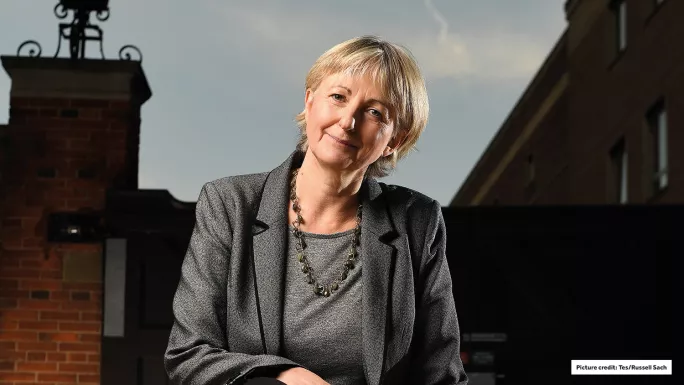
Curriculum conductor
Christine Counsell
The edu-trad movement is gaining influence - and one woman is at its forefront
Beaches, broads and open skies may be the tourist’s image of Norfolk, but the county is also developing a reputation as an education powerhouse. And when it comes to influencing what schools teach there, one woman’s name rings louder than all others: Christine Counsell.
Since becoming director of education last year at the Inspiration Trust, which runs 14 primary, secondary and post-16 academies in Norfolk and Suffolk, Counsell has assembled a team of influential subject specialists to create a “knowledge-rich curriculum”. She has form in this area, having previously developed the renowned secondary PGCE history course at the University of Cambridge.
Counsell is a leading light of the traditionalist education movement that puts knowledge, facts and the role of the teacher at the centre of the learning process, rather than cross-curricular skills and a focus on pupils discovering things for themselves.
For many, her move to Inspiration - a highly influential but sometimes controversial academy trust whose sponsor, Sir Theodore Agnew, became a Department for Education minister this term - signalled the seriousness of its ambitions.
The team she is assembling in Norwich reads like a Who’s Who of edu-trad heroes, including history specialist Michael Fordham and English specialist Anthony Radice.
Counsell’s influence is only likely to increase, as Ofsted - which plans to focus more on what schools teach - pushes the curriculum up its list of priorities. Even more so if the government delivers on the Conservatives’ 2017 election pledge to “ensure all children have access to an academic, knowledge-rich curriculum”.
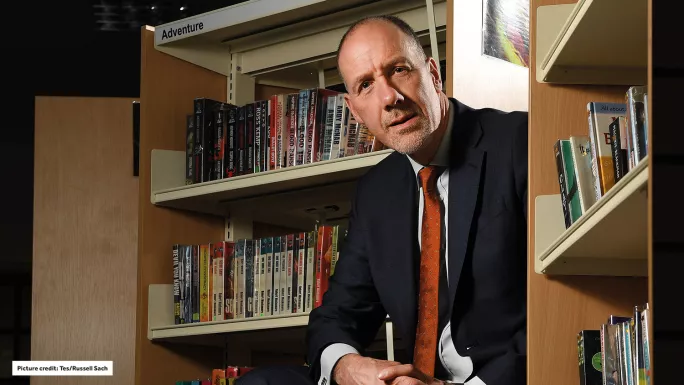
Coup insurgent
Geoff Barton
A breathtaking grab of ASCL’s reins heralds the rise of this secondary head
To say that 2017 was a massive year for Tes columnist Geoff Barton would be an understatement. In the past 12 months, the Suffolk secondary head has transformed from being a respected school leader with a committed, but hardly earth-shattering social media following, into one of the most influential figures on the national education stage.
How? Most obviously, the answer lies with his decision to run as the insurgent candidate in the Association of School and College Leaders’ first election for general secretaryship, opposing establishment choice, Chris Kirk. In the end - following a groundswell of support online and off - Barton’s combination of charm and radicalism saw him win at a canter.
Then came arguably the bigger challenge: what to do next.
Barton has taken to the role as if he were slipping on a favourite, tailored suit.
He has quickly been accepted by the establishment - both within ASCL and in the government - which fought so hard to avoid his takeover of the association. The price he has paid has been a slight softening of his message but, as it stands, even his most radical supporters are prepared to forgive this because he is such a breath of fresh air.
Keeping up the momentum will be Barton’s biggest challenge in 2018 and beyond. He has enjoyed a longer-than-average political honeymoon - and ASCL has not been faced with any difficult or profound differences with the government recently - largely thanks to the current, teacher-friendly education secretary, Justine Greening. If and when that changes, Barton will see how tough, and isolated, his new job can become.
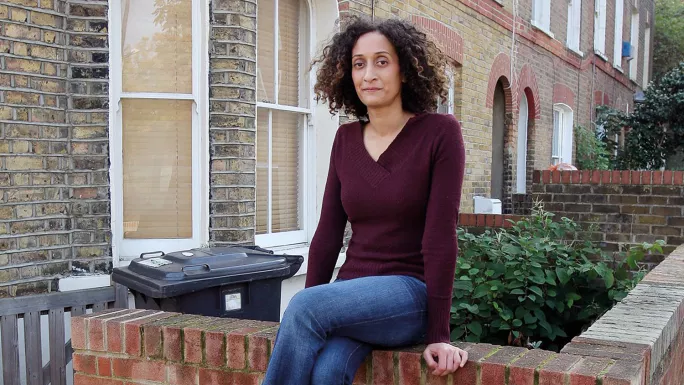
Scourge of fence-sitters
Katharine Birbalsingh
The controversial head’s direct approach inspires anything but indifference
The presence on this list of the headteacher of “Britain’s strictest school” - a moniker that has been bestowed both in praise and in horror - will be controversial.
While the likes of schools minister Nick Gibb view Katharine Birbalsingh’s Michaela Community School as “inspirational” and “outstanding”, others have huge reservations about an approach to education they claim is too controlling and pedagogically myopic.
Birbalsingh has not shied from the debate - she has fuelled it. Rarely has a school been so sure of its uniqueness and so keen to demonstrate it: books, national newspaper articles, events, podcasts and a steady stream of staff-written blogs disseminate “the word” of Michaela. Challenge is confronted, praise is celebrated, indifference is not tolerated - Birbalsingh wants you to have an opinion on her north-west London school; being unknown would give her no opportunity to change your mind. And be under no illusion: she believes her way is the right way and that the truth will out eventually.
So no, this is not a clickbait choice. This is an acknowledgement that Birbalsingh is a catalyst in the education system, one who has increasing agency with her first (unofficial) outpost at Great Yarmouth Charter Academy, where her former deputy head Barry Smith now runs a version of his former school for the Inspiration Trust.
You might not like her, and you might not like her approach, but she has (ironically) thrown out the educational rule book of a collegiate profession. Birbalsingh is coming for the unbelievers and she is making you choose sides. And - with the ear of the government - that makes her very powerful indeed.

Top tweeters, no kidding
Varndean goats
Bleaters of the year, these school pets have boosted learning by leaps and bounds
They began as an alternative to a lawnmower. Since then, they have comforted pupils, launched their own merchandise and turned their hooves to politics.
In these straitened times, the six pygmy goats of Varndean School embody the case for extracurricular pastoral care. Indeed, they are a hircine force to be reckoned with.
Alan, Ethel, Bertrand and William (another goat, Maya, sadly passed away) were introduced to the Brighton secondary school after its director of finance, Hilary Goldsmith, noticed that an enclosed grass courtyard could do with a little grazing. The flock has since been joined by two new kids on the classroom block: Pavilion and Downs.
Goat-petting time is now used as a way to tackle poor behaviour among pupils and to help with emotional regulation. Members of a 100-strong school club assist with goat maintenance. And four designated goat leaders have responsibility for daily feeding and grooming.
Other schools around the country have similarly adopted farmyard animals, believing that they allow for cost-effective pastoral care, as well as teaching pupils valuable lessons in responsibility. But the Varndean goats’ social media presence has ensured that they remain the leaders of the school-farm pack.
Regular appearances on Twitter are often accompanied by deadpan one-liners, and their fundraising efforts - selling I Varndean Goats badges - have allowed their newfound fans to declare themselves proudly.
In June, the goats attempted to predict the result of the general election via a system of carrot-eating and balloon-releasing. Although they opted for Labour, no one can doubt who the real winners of the exercise were.
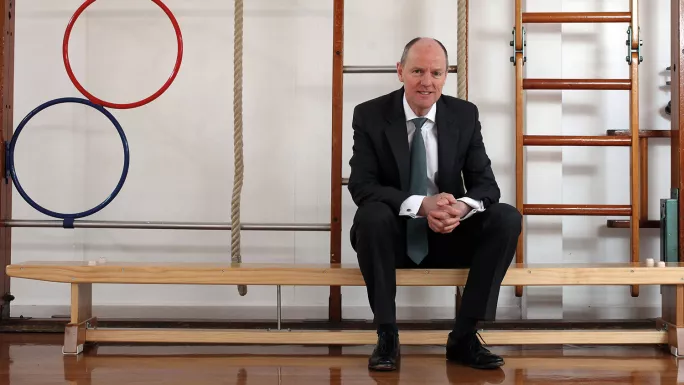
Comeback king
Nick Gibb
The school-standards minister has played a starring role since coming off the bench
Nick Gibb is the great survivor of British politics. The minister of state for school standards is one of those rare politicians who has found an interest and stuck with it. Instead of the usual zig-zagging path of promotion via a series of portfolios, Gibb has stuck doggedly to education since becoming shadow schools minister in 2005.
Joining Michael Gove’s Department for Education in 2010, he promoted synthetic phonics with an evangelical zeal that remains undiminished seven years on. His career seemed over when former prime minister David Cameron sacked him in 2012, but he made a return to government just two years later. Many saw Gibb’s resurrection as an attempt to ensure the Govian flame continued to burn strong, despite his former boss’s reign having been extinguished.
A chartered accountant before becoming an MP, Gibb has never been seen as the most charismatic politician in Westminster - the Daily Mail this summer described him as “one of life’s number twos” - but he has proved a highly effective minister in his single-minded pursuit of traditionalist educational causes.
This month, vindication seemed to come with the Progress in International Reading Literacy Study (Pirls) rankings, which put England joint-eighth in the world for 10-year-olds’ reading ability.
It was the first time Pirls had been conducted since the phonics check was introduced, and although critics warn against simplistic interpretations of the results, Gibb has been basking in the praise of Conservative colleagues ever since. For the first time, Westminster insiders are whispering that Gibb could be due a cabinet promotion.
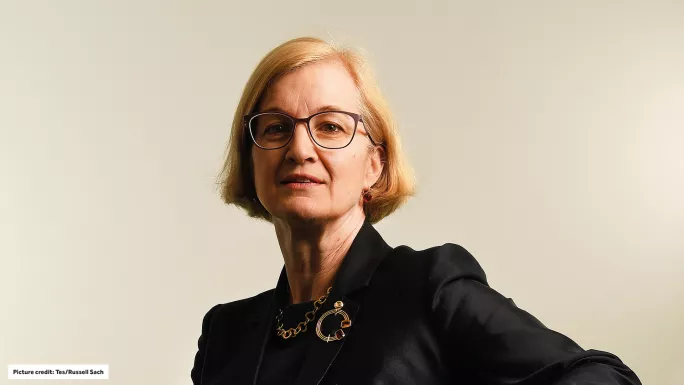
Intrepid inspector
Amanda Spielman
Proof that an insistence on research could lead to better regulation policy
It was always going to be a hard act to follow. Sir Michael Wilshaw, Ofsted chief inspector until December last year, could more or less generate headlines in his sleep.
This is not the only reason that Amanda Spielman would have been forgiven for faltering in her role as Her Majesty’s chief inspector. Her appointment was initially rejected by the House of Commons Education Select Committee, before being pushed through by former education secretary Nicky Morgan.
But Spielman was unfazed. Instead, the former Ofqual chair made it clear that she was bringing her own style to the role.
Her approach has been notable for its caution - almost everything Spielman says is backed up by research - but also for its focus. There is no mistaking the issues she is concerned about because they crop up again and again.
The curriculum is one. Almost immediately, Spielman launched a long-term curriculum investigation, drawing attention to schools that have boosted their league-table position artificially, unofficially excluded pupils who were unlikely to do well in exams, or crammed key stage 3 teaching into two years.
There has also been an emphasis on cutting teacher workload, as well as reducing the stress and pressure associated with inspection. And if Spielman became the focus of much social media mockery for suggesting that headteacher-bloggers were causing teachers anxiety, she took it with grace and humour.
Of course, honeymoon periods are common for people taking on new roles. But the reaction of many in the profession to Spielman’s progress so far could be summed up by one teacher’s comment in Tes: “I have a confession to make: I like the new head of Ofsted.”

Self-empowered leaders
#WomenEd
A group determined to end gender inequality has inspired no less than a movement
Even the education sector, in which the majority of teachers are female, can feel male-dominated. Whether it’s the composition of a panel at an event or a senior leadership team, gender imbalance is still clear for all to see.
But a group of women have been working tirelessly for two-and-a-half years to address such inequalities in the sector - especially in school leadership positions - through the #WomenEd movement.
Since it was set up in 2015, the social media-based networking group - which has 15,600 followers and 57,000 likes on Twitter - has helped to connect women in the profession united by a common goal.
But the #WomenEd movement doesn’t focus only on gender. The group also campaigns for a more equitable balance of ethnicity in school leadership roles.
The grassroots group has run three successful national “unconferences” across the country. A number of regional networks have also been set up to connect aspiring and existing leaders with each other.
The group continues to go from strength to strength, too. This term, it ran its own study, which revealed that almost half of female teachers have experienced discrimination in the workplace. And this year, the movement even spread across the pond with the launch of WomenEd Canada.
To think that it all began with a discussion over a cup of tea - about a series of blogs on women leaders in education - is pretty remarkable. Even more impressive is how far it has come in such a short timespan - and how much it looks set to grow further.
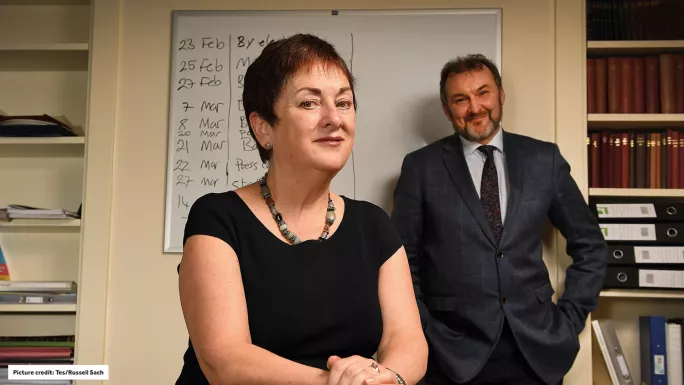
Dynamic duo
Mary Bousted and Kevin Courtney
If setting up a superunion wasn’t enough of a win, securing £1bn for schools was
Mary Bousted and Kevin Courtney have both enjoyed a spectacular year. The union leaders finally delivered on a long-held ambition by many education trade unionists to bring together two of the big teaching unions.
In March, members of the NUT and the ATL voted to form a new “superunion” - the National Education Union - which formally came into existence on 1 September. The move marked the end of an era, bringing to a close the 147-year history of the NUT.
With a membership totalling about 450,000, the NEU is the fourth largest union in the TUC and the biggest education union in Europe. The personal chemistry between Bousted and Courtney, who will serve as joint general secretaries of the union until 2023, undoubtedly helped smooth the way for the merger.
The creation of the NEU is not the only reason why the pair are entitled to feel happy with how the year has panned out. On the final day of the NUT’s annual conference in April, Courtney was forced to hastily rewrite his speech because of the small matter of the prime minister calling a general election just one hour earlier.
In his speech, he pledged to fight to stop the government from getting a mandate to roll out new grammar schools, and to “make school funding the centre of this election campaign”.
As has been well documented, the loss of Theresa May’s House of Commons majority was enough to sink her grammar schools policy. Meanwhile, Bousted and Courtney spearheaded the “School Cuts” campaign, which helped secure an additional £1.3 billion of funding for schools.
Deciding the Tes Person of the Year is an entirely undemocratic and unscientific process. The judging panel is made up of the editors and section heads of Tes magazine, with the deciding vote, if it is needed, going to the editor, Ann Mroz.
You need a Tes subscription to read this article
Subscribe now to read this article and get other subscriber-only content:
- Unlimited access to all Tes magazine content
- Exclusive subscriber-only stories
- Award-winning email newsletters
Already a subscriber? Log in
You need a subscription to read this article
Subscribe now to read this article and get other subscriber-only content, including:
- Unlimited access to all Tes magazine content
- Exclusive subscriber-only stories
- Award-winning email newsletters